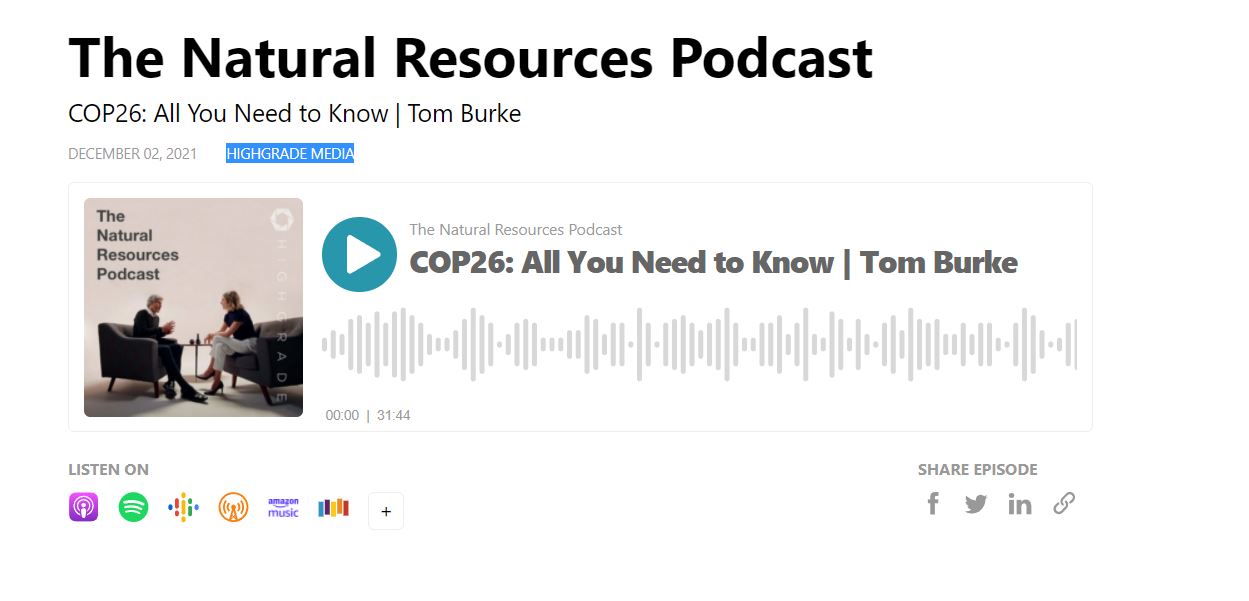
At COP26 I think we did better than I’d expected and nothing like good enough, is my general feeling. I think the tone was interesting, rather than the specifics of the outcome – which everybody’s commentaries focused on – the tone was interesting, because it was a much greater sense of people wanting to get it done. And there were some moments when, in the nature of a UN meeting, people could have held it all up, and they didn’t. And I think that reflects the fact that the urgency has got through to governments. I think the public has had it for some time.
The private sector is not a sector, there are several bits, and they don’t all flow in the same direction. I think the finance community has really got the point. And that stems from Paris and Mark Carney having pointed out that climate change was an existential threat to macroeconomic stability. And what’s flying from that is the idea that carbon climate risk really matters. And I think the financial community is gearing up for that. I think some bits of the corporate sector, particularly the sort of fossil fuel industries, have begun to take this very seriously, in the sense that they see it as a threat to their business model as well as to their revenues.
But I think quite a lot of the corporate sector is still some way from understanding what they’re exposed to if climate policy fails. For instance, if you think about Europe and the tourist industry and how important that is to a lot of European economies, if climate policy fails, by 2040 there could well be a real hit on the tourists, the whole hospitality industry, in southern Europe, as Northern Europeans find the idea of spending two or three weeks in 40 degrees heat not very compelling. You have all the threats of fire and water availability as well. And I don’t think the corporate sector have understood how much they’ve got at risk yet. They’re still a bit focused on whether it will put the price of fuels up.
We fell short both in terms of ambition, in other words the rate at which we’re going to drive emissions down, and we fell short in terms of the transfers of money and the releasing of money. So not just the 100 billion dollar-promise that was made in Paris, which we’ve now r-promised to make in 2023, but also the greater mobilization of both private and public finance to help with greening the recovery of after COVID and so on. So, lots of the right words, but there’s still not enough money on the table.
These are some excerpts from an podcast for Highgrade Media. The full discussion can be heard here:
